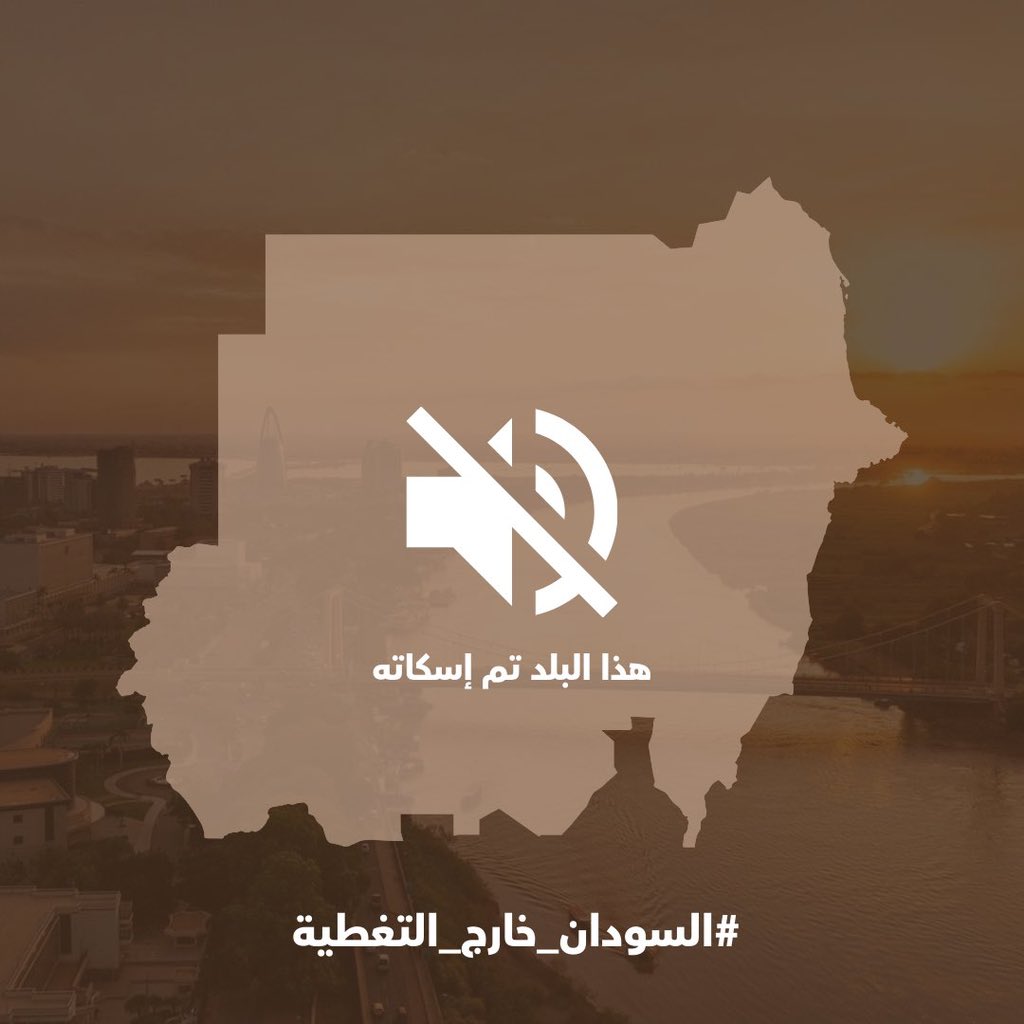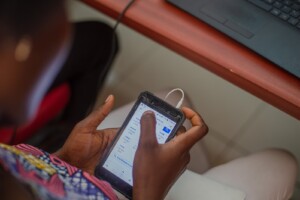Communications blackout continues in large parts of Sudan

Poster by the Wad Madani Resistance Committees in El Gezira on the continued communications blackout in Sudan (@Res_Wadmadani on X)
The total telecommunications and internet blackout continues in Khartoum, El Gezira, Blue Nile region and other parts of Sudan. The outages are causing a severe cash crisis in the country. The managing director of Zain Sudan confirmed to Dabanga that the company’s services have been cut by the Rapid Support Forces (RSF).
While large parts of Darfur and Kordofan have been experiencing months-long blackouts, forcing people to use Starlink satellite communication network, the rest of Sudan remains for a large part cut off from the outer world for nearly three weeks.
Zain and MTN networks continue to be down. The third main provider, Sudani, returned in areas controlled by the Sudanese Armed Forces (SAF) in eastern and northern Sudan a week ago.
Sudani announced the resumption of its services in 21 centres in Northern State and River Nile state, and in Port Sudan, Kassala, and El Gedaref. The new tariffs for internet packages range from SDG650* per 500MB to SDG4,000 for 10GB.
“The quality of the restored Sudani internet service is far from good, and varies from one area to another,” sources reported to Dabanga.
The Sudani network returned after a new data centre was set up in Port Sudan, capital of Red Sea state, where the de facto Sudanese government moved to following the outbreak of the violent conflict between the SAF and the paramilitary Rapid Support Forces (RSF) in Khartoum in April last year.
Unverified reports claim that Zain services may be restored in the coming days after the provider also manages to establish a new data centre in Port Sudan.
The internet outage has led to a severe cash crisis in the country. In various neighbourhoods in Khartoum state, the commission for cash delivery of bank transfers reached 30 per cent. Across the country, commodity prices are soaring.
Control
The RSF controls all the main data centres of Zain, Sudani, and MTN in Khartoum.
The Sudanese Telecommunications and Postal Regulatory Authority accused the RSF in early February of forcing the three provides to shut down telecommunications and internet service to demand the return of networks to Darfur, but the RSF denied the claim, accusing the telecommunications authority of being affiliated with the SAF.
The resistance committees of Hasaheisa in El Gezira yesterday renewed their accusation that the RSF carried out sabotage operations on the Internet and telecommunications infrastructure.
In a statement on social media, the resistance committees also accused the SAF of depriving El Gezira and other states controlled by the RSF of the Sudani network.
The statement denounced the communications companies’ disclaimer of responsibility to provide services “to those who deserve them” and “the failure to explain the reasons for the absence of the network and communications for so long”.
‘Not on purpose’
The managing director of Zain Sudan, Security Lt Gen El Fateh Orwa, confirmed last week that the RSF had cut off the company’s communication and Internet services.
“The control of Zain’s main database that serves all of Sudan, is located in Jabra in southern Khartoum. Restoring the service only requires returning access of our technical team to the operation buttons,” he explained, and stressed that the company “did not receive instructions from any party to cut off the service, whether from the government or others”.
Orwa, who was speaking in a live broadcast on the Tanweer platform via social media, described the problem as “simple but in a complex situation.
“Cutting off the service is an easy process that requires no effort other than shutting down the power generators,” he explained. “Yet, throughout the past period, the RSF let the technical team of Zain do their work normally.
The RSF however decided to disconnect the generators that power the database in Jabra “because they believe that Zain cut off its services in Darfur on purpose, not because of the rampant insecurity there”.
Zain Sudan then sought to cooperate with the RSF to restore the services in the western region. “After they agreed, our maintenance team began working, but not much later we were surprised to hear that the RSF closed the network throughout the country without any reason.
“So, the return of the network lies in the hands of RSF,” the Zain Sudan manager said and warned that “any delay in restoring the services will cause additional complications when restarting again”.
Last year in September, the RSF allowed Zain engineers to restore the network in Nyala, capital of South Darfur and other cities in the region. In November, activists in El Geneina, West Darfur, told Dabanga that the Zain network returned partially.
‘Strategic error’
Engineer Hossam Osman, who worked for Zain and Mobitel, told Dabanga that the SAF and the RSF each have their own communications network, so they are not affected by the blackout. He expressed his regret that the RSF obtained their own network during the transitional civilian government chaired by PM Abdallah Hamdok (2019-2021).
Regarding the fact that the army first disconnected communication networks in Darfur when the battles intensified in the region, engineer Osman explained that the networks in Darfur were already experiencing problems before the outbreak of the war, due to the dire security conditions in the region.
“Things got worse after the war erupted. At first, both sides to the conflict did not want to cut off communications, but they decided to do this when the battles escalated.”
Osman denied rumours that the RSF threatened to cut off telecommunication and Internet in northern and eastern Sudan until the networks were restored in Darfur, though he did not rule out that the current communications blackout is related to political issues.
He said he does not believe that the Internet shutdown has something to do with reports about the arrival of Iranian drones to the army at the time the blackout started. He further ruled out that the communications blackout is related to an alleged coup attempt within the SAF last week.
The engineer expressed his regret about seeing “no solution on the horizon other than the two parties to the conflict refraining from using communications networks as a weapon in their war”.
* The middle rate of the US Dollar at the Faisal Islamic Bank today amounts to SDG1,144. The greenback was selling for SDG1,200 at the parallel market on February 5.











 and then
and then